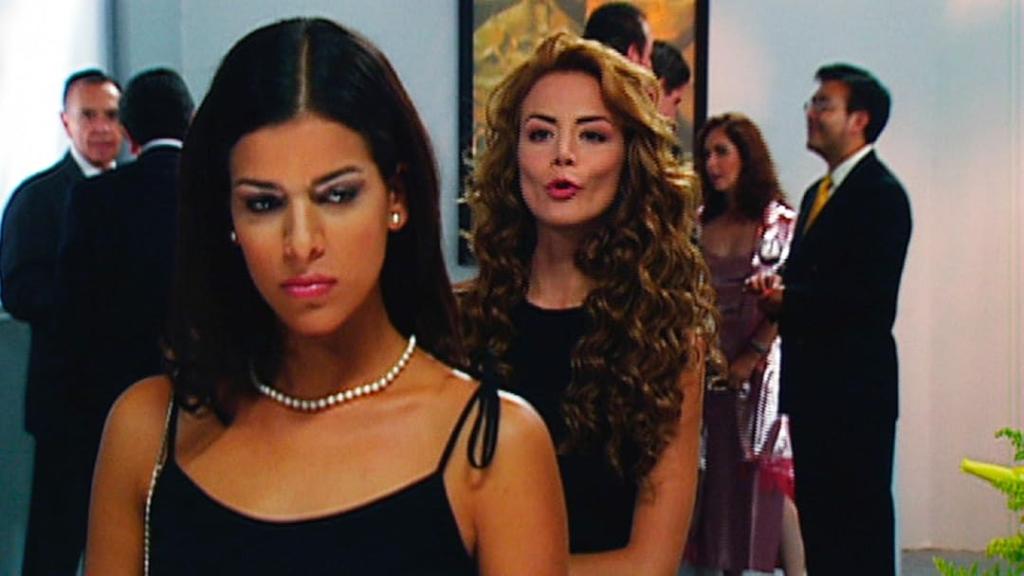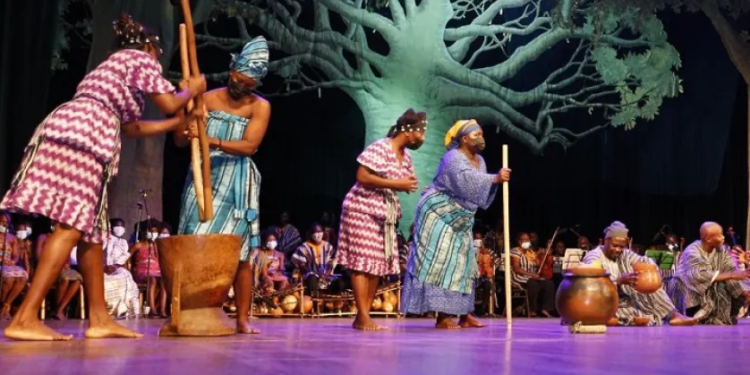Theatre in Ghana has experienced a dynamic trajectory in recent decades, marked by periods of decline and inspiring resurgences that reflect the country’s cultural vibrancy and societal changes.
Historically, Ghanaian theatre has been deeply rooted in traditional storytelling, rituals, and communal performances, serving as a vital medium for cultural expression and social commentary.
However, like many traditional art forms globally, Ghanaian theatre faced challenges in adapting to modern times, particularly during periods of economic hardship and shifting audience interests.

The National Theatre was a project that was commenced by Osagyefo Dr Kwame Nkrumah and actualized by H.E Jerry John Rawlings.
In the latter half of the 20th century, theatre in Ghana encountered significant challenges that led to its decline.
Economic instability and political upheavals affected funding for the arts, resulting in reduced support for theatrical productions and limited opportunities for artists.
In addition, the influx of television stations that focused more on foreign content to the taste of theatre had a more strenuous effect on the theatre industry.
Over time, the adaptation of theatre onto the screens like the Thursday theatre on Ghanaian Broadcasting powerhouse owned by the state, GTV started killing theatre gradually.
Even though, it seemed that the practice was convenient, the thriving nature of the Concert Party model, which was running in the late eighties to the mid nineties eventually died when the taste for foreign series like “Acapulco Bay”, “Rosalinda”, “Second Chance”, Passions, Cuando Seas Mia among others gradually faded stage productions.

A performance of the play, Ayiiyi
Later, digital media introduced new forms of entertainment that competed for audiences’ attention, diverting interest away from live performances. As a result, traditional theatre practices struggled to attract younger generations, leading to a decline in both audience attendance and the number of active theatre groups across the country.
Revival: Cultural Renaissance and Innovation of Theatre In Ghana
Despite these challenges, the past two decades have witnessed a remarkable revival of Ghanaian theatre, driven by a resurgence of cultural pride, increased governmental and private sector support, and innovative approaches by artists and theatre companies.
Recognizing the intrinsic value of theatre in preserving cultural heritage and fostering national identity, various initiatives have been launched to promote theatrical arts across Ghana.
Educational institutions like the University Of Cape Coast and University of Education, Winneba followed suit, the perfect example of the University of Ghana’s School of Performing Arts that made sure that they continued to plant the love for theatre gradually into the hearts of theatre lovers in Ghana.
Read This Also: The fall of Ghana rap industry and what brought us this far

One of the famous scenes in the telenovela, Cuando Seas Mia
The University of Cape Coast, cited advantageously closely to the Centre For National Culture, pushed each other to rise theatre once again especially through collaborations.
In addition, some grassroots organizations also played pivotal roles in nurturing emerging talent and providing platforms for new voices to be heard. Modern adaptations of traditional stories and incorporation of contemporary issues have made theatre more relevant and appealing to diverse audiences, including younger demographics previously disengaged from live performances.
The Future: Prospects and Challenges
Looking ahead, the future of theatre in Ghana appears promising yet still faces challenges. While there has been a resurgence in interest and investment, sustaining this momentum requires continued support from both public and private sectors.
Addressing infrastructure deficits, enhancing educational opportunities, and expanding access to funding are critical to ensuring the long-term viability of Ghanaian theatre.

























